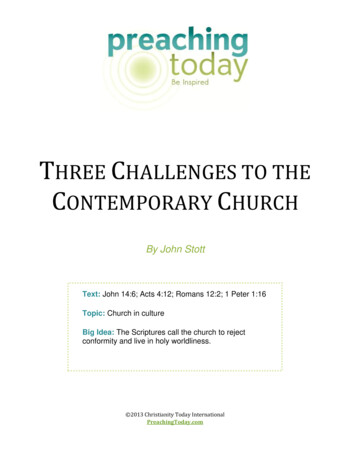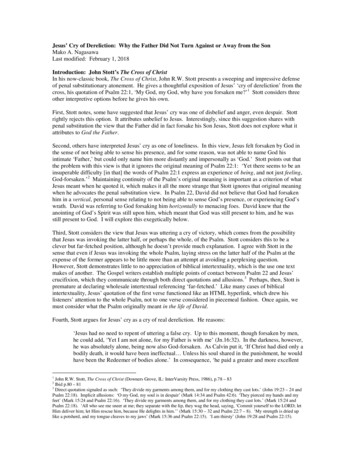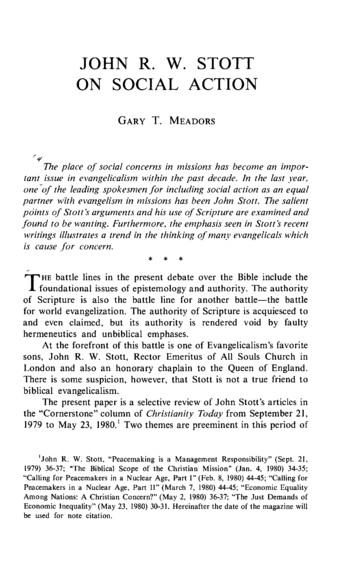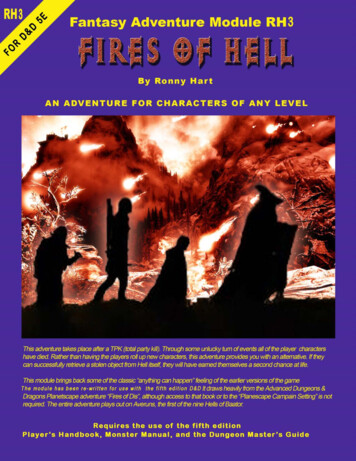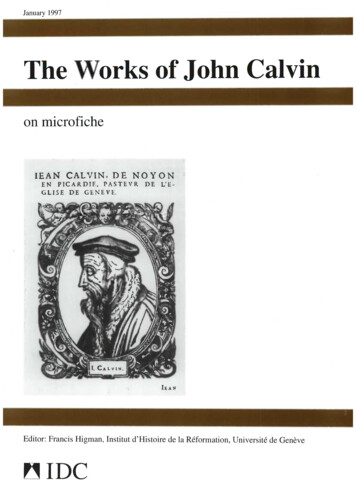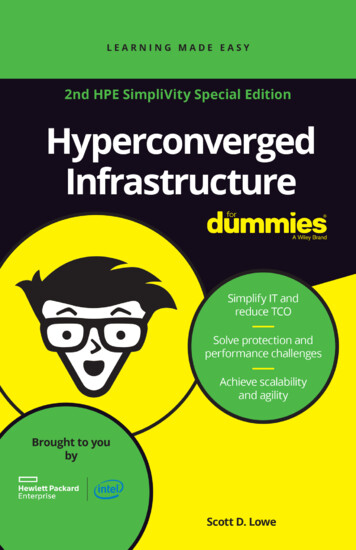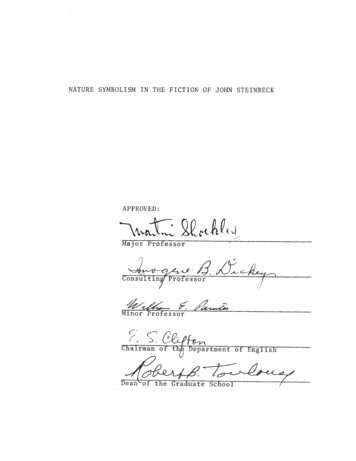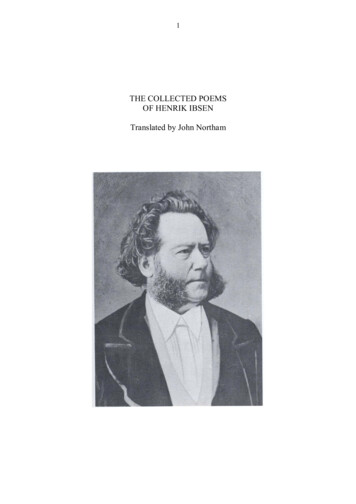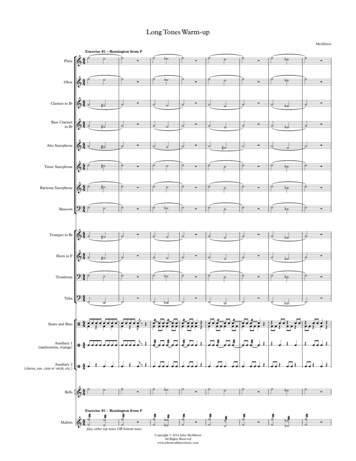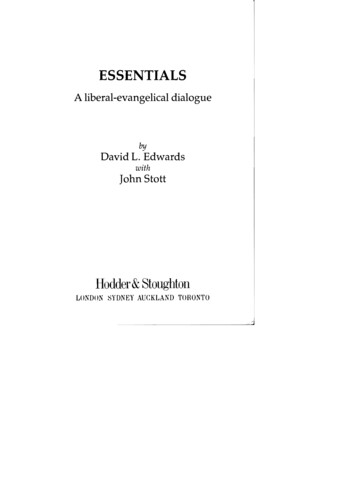
Transcription
ESSENTIALSA liberal-evangelical dialoguebyDavid L. EdwardswithJohn StottHodder & StoughtonLONDON SYDNEY AUCKLAND TORONTO
British library Cataloguing in Publication DataEdwards, David L. (David Lawrence), 1929 Essentials.1. Christian church. EvangelismI. Title II. Stott, John R. W. (JohnRobert Walmsley), 1921 269'.2ISBN 0 340 42623 3Copyright 1988 by DacJid L Edwards and John Stott. First printed 1988. Allrights reserved. No part of this publication may be reproduced or transmitted inany form or by any means, electronically or mechanically, including photo copying, recording or any information storage or retrieval system, without eitherprior permission in writing from the publisher or a licence permitting restrictedcopying. In the United Kingdom such licences are issued by the CopyrightLicensing Agency, 33-34 Alfred Place, London WClE 7DP. Printed in GreatBritain for Hodder & Stoughton Limited, Mill Road, Dunton Green, Sevenoaks,Kent by Richard Clay Limited, Bungay, Suffolk. Photoset by Rowland Photo typesetting Limited, Bury St Edmunds, Suffolk. Hodder & Stoughton EditoritllOffice: 47 Bedford Square, Lolldoll WC1B 3DP.
ContentsPrefaceAbbreviationsixxi1 The Power of the GospelJohn Stott's Response1322 The Authority of the ScripturesJohn Stott's Response83413 The Cross of ChristJohn Stott's Response1071584 The Miraculous ChristJohn Stott's Response1692155 The Bible and BehaviourJohn Stott's Response2342596 The Gospel for the WorldJohn Stott's Response273306Epilogue by John Stott332QuestionsBooks referred to in the textIndex339341349
112ESSENTIALS'we who are still alive', 'we will not all sleep' and 'the time isshort' (1 Thessalonians 4:15; 1 Corinthians 15:51; 1 Corin thians 7:29)? Well, of course, it is possible for you to pressthese (as others do) into being Paul's definite (and mis taken) teaching that the parousia would take place in hislifetime. But would you not then be guilty of the veryliteralism of which you keep accusing me? If I am right thatJesus did not teach it, it seems to me unlikely that theapostles did. If I am also right that Jesus' emphasis was onthe unexpectedness of his return and on the consequentneed for watchfulness, then it seems to me likely that thiswas the apostles' emphasis too. I believe God's purpose isfor every generation of Christians to live in eager anticipa tion of the parousia; the promise 'I am coming soon' wellexpresses and secures this expectation. It is an aspect of theChristian 'hope' which has always been precious toEvangelicals.Judgement and HellIt is with great reluctance and with a heavy heart that I nowapproach this subject. You quote the Grand Rapids reportwhich describes the unevangelised millions as humanbeings who, 'though created by God like God and for God. . . are now living without God'. This is a phrase which Ihave myself often used, because it seems to me to sum upthe poignant tragedy of human lostness. And when it isextended to the possibility that some who live without Godnow may also spend eternity without him, the thoughtbecomes almost unbearable.I want to repudiate with all the vehemence of which I amcapable the glibness, what almost appears to be the glee,the Schadenfreude, with which some Evangelicals speakabout hell. It is a horrible sickness of mind or spirit. Instead,since on the day of judgement, when some will be con demned, there is going to be 'weeping and gnashing ofTHE GOSPEL FOR THE WORLD -Response313teeth' (Matthew 8:12; 22:13; 24:51; 25:30; Luke 13:28), shouldwe not already begin to weep at the very prospect? I thankGod for Jeremiah. Israelite patriot though he was, he wascharged with the heartbreaking mission of prophesying thedestruction of his nation. Its ruin would only be temporary;it would not be eternal. Nevertheless, he could not restrainhis tears. 'Qh that my head were a spring of water and myeyes a fountain of tears! I would weep day and night for theslain of my people' (Jeremiah 9:1; d. 13:17; 14:17).It is within this prophetic tradition of tragedy, of sorrowover people's rejection of God's word and over the resul tant inevitability of judgement, that Jesus wept over theimpenitent city of Jerusalem. He cried out: 'If you, evenyou, had only known on this day what would bring youpeace . !' (Luke 19:41-42; d. Matthew 23:37-38). In thistoo Paul had the mind of Christ. He wrote of the 'greatsorrow and unceasing anguish' he felt in his heart for hisown race, the people of Israel. His 'heart's desire andprayer to God' was for their salvation. He was willing even,like Moses before him, to be himself 'cursed and cut offfrom Christ' if only thereby his people might be saved(Romans 9:1-4; 10:1; d. Exodus 32:32). He had the samedeep feelings for the Gentiles. For three whole years inEphesus, as he reminded the church elders of that City, 'Inever stopped warning each of you night and day withtears' (Acts 20:31; d. 20:19; Philippians 3:18).I long that we could in some small way stand in thetearful tradition of Jeremiah, Jesus and Paul. I want to seemore tears among us. I think we need to repent of ournonchalance, our hard-heartedness.(a) What is hell?You raise two main questions in relation to hell. The firstconcerns what is meant by it, and the second who may becondemned to go there. We both agree that the imagery
314ESSENTIALSwhich Jesus and his apostles used (the lake of fire, the outerdarkness, the second death) is not meant to be interpretedliterally. In any case it could not be, since fire and dark ness exclude each other. You comment positively on theLausanne Covenant's expression 'eternal separation fromGod'; it is a conscious echo both of Jesus' words 'departfrom me' (Matthew 7:23; 25:41) and of Paul's 'shut out fromthe presence of the Lord' (2 Thessalonians 1:9). We surelyhave to say that this banishment from God will be real,terrible (so that 'it would be better for him if he had not beenborn', Mark 14:21) and eternal. The New Testamentcontains no hint of the possibility of a later reprieve oramnesty. The biblical phraseology includes, in contrast to'eternal life' and 'eternal salvation', 'eternal judgement'(Hebrews 6:2 and possibly Mark 3:29), 'everlasting con tempt' (Daniel 12:2), 'eternal punishment' (Matthew 25:46),'everlasting destruction' (2 Thessalonians 1:9) and 'eternalfire' (Matthew 18:8; 25:41). And the imagery supportingthis phraseology includes the pictures of the door beingshut (Matthew 25:10-12) and the great chasm being fixed(Luke 16:26).You press me, however, to go beyond this. You rightlysay that I have never declared publicly whether I think hell,in addition to being real, terrible and eternal, will involvethe experience of everlasting suffering. I am sorry that youuse in reference to God the emotive expression 'the EternalTorturer', because it implies a sadistic infliction of pain, andall Christian people would emphatically reject that. But willthe final destiny of the impenitent be eternal conscioustorment, 'for ever and ever', or will it be a total annihilationof their being? The former has to be described as traditionalorthodoxy, for most of the church fathers, the medievaltheologians and the Reformers held it. And probably mostEvangelical leaders hold it today. Do I hold it, however?Well, emotionally, I find the concept intolerable and do notunderstand how people can live with it without eithercauterising their feelings or cracking under the strain. Butour emotions are a fluctuating, unreliable guide to truthTHE GOSPEL FOR THE WORLD -Response315and must not be exalted to the place of supreme authority indetermining it. As a committed Evangelical, my questionmust be - and is not what does my heart tell me, but whatdoes God's word say? And in order to answer this question,we need to survey the biblical material afresh and to openour minds (not just our hearts) to the possibility thatScripture pOints in the direction of annihilation, and that'eternal conscious torment' is a tradition which has to yieldto the supreme authority of Scripture. There are fourarguments; they relate to language, imagery, justice anduniversalism.First, language. The vocabulary of 'destruction' is oftenused in relation to the final state of perdition. The com monest Greek words are the verb apollumi (to destroy) andthe noun apoleia (destruction). When the verb is active andtransitive, 'destroy' means 'kill', as when Herod wanted tomurder the baby Jesus and the Jewish leaders later plottedto have him executed (Matthew 2:13; 12:14; 27:4). ThenJesus himself told us not to be afraid of those who kill thebody and cannot kill the soul. 'Rather,' he continued, 'beafraid of the One [God] who can destroy both soul and bodyin hell' (Matthew 10:28; d. James 4:12). If to kill is to deprivethe body of life, hell would seem to be the deprivation ofboth physical and spiritual life, that is, an extinction ofbeing. When the verb is in the middle, and intransitive, itmeans to be destroyed and so to 'perish', whether physical ly of hunger or snakebite (Luke 15:17; 1 Corinthians 10:9) oreternally in hell (e.g. John 3:16; 10:28; 17:12; Romans 2:12; 1Corinthians 15:18; 2 Peter 3:9). If believers are hoi sozomenoi(those who are being saved), unbelievers are hoi apollumenoi(those who are perishing). The phrase occurs in 1 Corin thians 1:18,2 Corinthians 2:15; 4:3, and in 2 Thessalonians2:10. Jesus is also recorded in the Sermon on the Mount ascontrasting the 'narrow . road that leads to life' with the'broad . road that leads to destruction' (Matthew 7:13; d.also Romans 9:22; Philippians 1:28; 3:19; Hebrews 10:39; 2Peter 3:7; Revelation 17:8,11; the word used in 1 Thessalo nians 5:3 and 2 Thessalonians 1:9 is olethros, which also
316ESSENTIALSmeans 'ruin' or 'destruction'). It would seem strange, there fore, if people who are said to suffer destruction are in factnot destroyed; and, as you put it, it is 'difficult to imagine aperpetually inconclusive process of perishing'. It cannot, Ithink, be replied that it is impossible to destroy humanbeings because they are immortal, for the immortality - andtherefore indestructibility - of the soul is a Greek not abiblical concept. According to Scripture only God possessesimmortality in himself (1 Timothy 1:17; 6:16); he reveals andgives it to us through the gospel (2 Timothy 1:10). And bythe way, 'annihilation' is not quite the same as 'conditionalimmortality'. According to the latter, nobody survivesdeath except those to whom God gives life (they are there fore immortal by grace, not by nature), whereas accordingto the former, everybody survives death and will even beresurrected, but the impenitent will finally be destroyed.The second argument concerns the imagery used in Scrip ture to characterise hell, and in particular that of fire. Jesusspoke of 'the fire of hell' (Matthew 5:22; 18:9) and of 'eternalfire' (Matthew 18:8; 25:41), and in the Revelation we readabout 'the lake of fire' (20:14-15). It is doubtless because wehave all had experience of the acute pain of being burned,that fire is associated in our minds with 'conscious tor ment'. But the main function of fire is not to cause pain, butto secure destruction, as all the world's incinerators bearwitness. Hence the biblical expression 'a consuming fire'and John the Baptist's picture of the Judge 'burning up thechaff with unquenchable fire' (Matthew 3:12, d. Luke 3:17).The fire itself is termed 'eternal' and 'unquenchable', but itwould be very odd if what is thrown into it provesindestructible. Our expectation would be the opposite: itwould be consumed for ever, not tormented for ever.Hence it is the smoke (evidence that the fire has done itswork) which 'rises for ever and ever' (Revelation 14:11; d.19:3).Four objections are raised to this understanding of 'thelake of fire'.THE GOSPEL FOR THE WORLD -Response317(I) There is the vivid picture of hell as a place where 'theirworm does not die, and the fire is not quenched' (Mark9:48). It is a quotation from the last verse of Isaiah (66:24),where the dead bodies of God's enemies are consigned tothe city's rubbish dump to be eaten by maggots andburned. It is not necessary to apply this as Judith did,however, namely that God would take vengeance on thehostile nations, 'to put fire and worms in their flesh' so that'they shall weep and feel their pain for ever' Oudith 16:17).Jesus' use of Isaiah 66:24 does not mention everlasting pain.What he says is that the worm will not die and the fire willnot be quenched. Nor will they - until presumably theirwork of destruction is done.(2) At the end of the so-called parable of the sheep andgoats, Jesus contrasted 'eternal life' with 'eternal punish ment' (Matthew 25:46). Does that not indicate that in hellpeople endure eternal conscious punishment? No, that is toread into the text what is not necessarily there. What Jesussaid is that both the life and the punishment would beeternal, but he did not in that passage define the nature ofeither. Because he elsewhere spoke of eternal life as aconscious enjoyment of God Oohn 17:3), it does not followthat eternal punishment must be a conscious experience ofpain at the hand of God. On the contrary, although declar ing both to be eternal, Jesus is contrasting the two destinies:the more unlike they are, the better.(3) But did not Dives cry out because he was 'in agony inthis fire' (Luke 16:23-24,28)? Yes, he did. But we must becautious in interpreting a parable (if it was that) whichspeaks of'Abraham's bosom' as well as hell fire. Moreover,these two states were experienced immediately after Divesand Lazarus died (verses 22-23). The natural interpretationwould be that Jesus was referring to the so-called 'in termediate (or interim) state' between death and resurrec tion. I myself believe that this will be the time (if indeed weshall be aware of the passage of time) when the lost willcome to the unimaginably painful realisation of their fate.This is not incompatible, however, with their final annihil
JIHESSENTIALS.llion. Si
John Stott's Response 259 6 The Gospel for the World 273 John Stott's Response 306 Epilogue by John Stott 332 Questions 339 Books referred to in the text 341 Index 349 . 112 . ESSENTIALS 'we who are still alive', 'we will notall sleep' and 'the time is short' (1 Thessalonians 4:15; 1 Corinthians 15:51; 1 Corin thians 7:29)? Well, of course, it is possible for you to press these (as others do .
